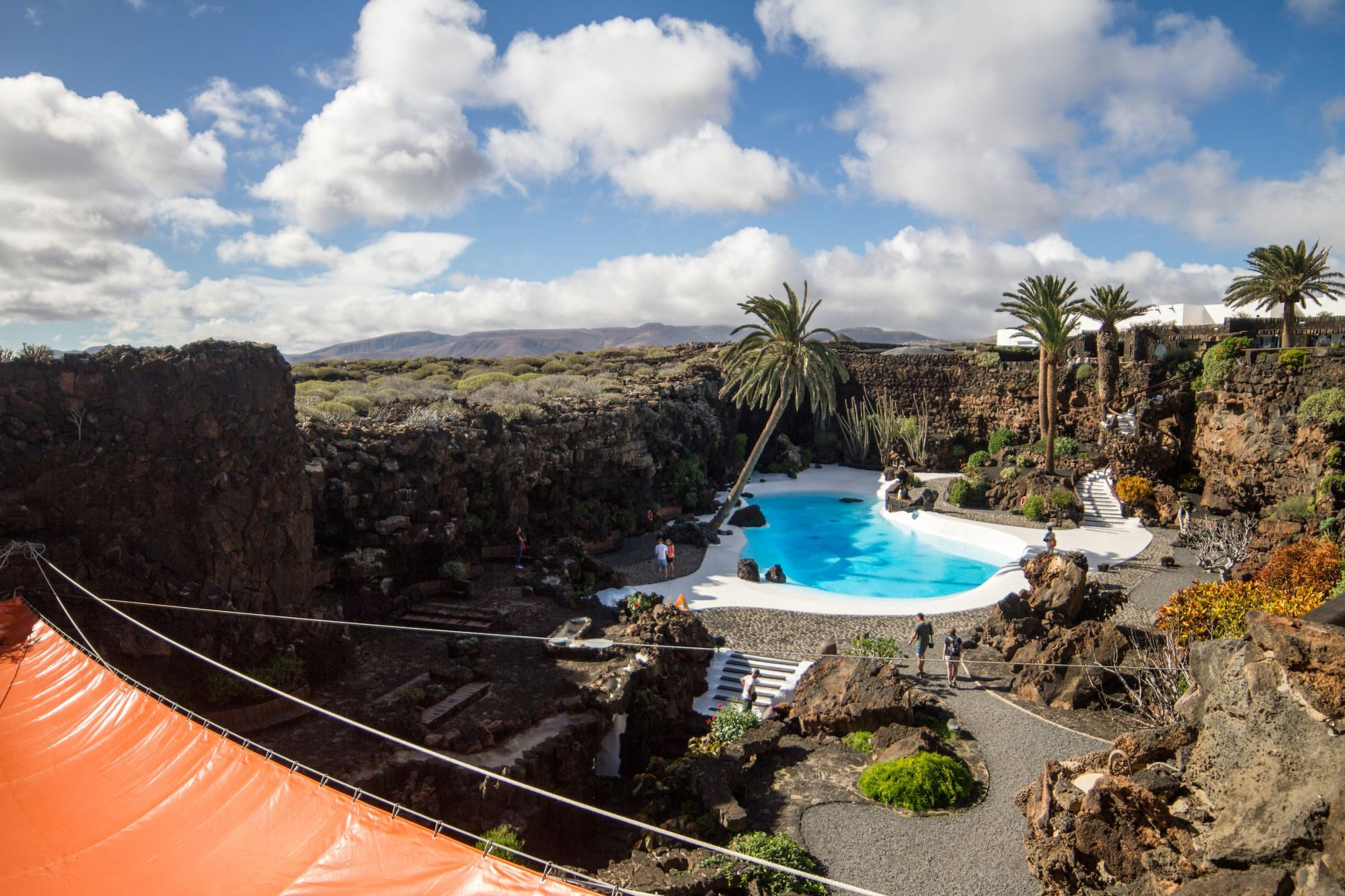 The wing of an airliner and a sunset over an urban landscape are visible from a window seat
The wing of an airliner and a sunset over an urban landscape are visible from a window seat
Do you dream of turning your passion for travel into a full-time job? The travel industry offers a wide array of exciting and fulfilling Travel Industry Careers that can take you around the globe. Whether you envision yourself working at bustling airports, planning dream vacations, or exploring exotic destinations as part of your job, there’s a place for you in this dynamic field. This guide explores 10 diverse careers in the travel industry, providing insights into each role and the industry landscape.
For those seeking a fulfilling and flexible career path, becoming a travel advisor with Fora presents a unique opportunity. (If you’re curious about Fora, you can discover more about what Fora offers.) However, we also recognize the value and excitement in many other travel industry jobs. In fact, many of these roles often collaborate with travel advisors, creating a vibrant and interconnected industry ecosystem.
10 Fantastic Careers in the Travel Industry
Let’s delve into a detailed overview of various job opportunities in the travel industry.
(P.S. Many of these travel industry career paths are also recognized as excellent remote job options for parents, offering flexibility and work-life balance.)
Airport Staff & Flight Attendants
Airport staff and flight attendants are the backbone of the travel experience, playing a crucial role in facilitating seamless journeys, both near and far. These travel industry professionals ensure the smooth operation of airports and the safety and comfort of passengers in the air. Entry-level airport positions often require a high school diploma, opening doors to a wide range of individuals. Exceptions include specialized roles like avionic mechanics and administrative positions that may require further technical training or education. Flight attendants, in particular, enjoy a unique perk – the opportunity to experience new destinations during overnight layovers, making it an attractive travel career for those with a love for exploration and independent travel.
However, it’s important to acknowledge the demanding nature of these travel industry careers. Airport staff and flight attendants often work irregular schedules, including early mornings, late nights, weekends, and holidays. The work can be physically and mentally taxing, requiring adaptability and resilience.
Pilots
 A woman with a pilot
A woman with a pilot
Pilots hold a unique position in the travel industry, quite literally seeing the world from a perspective few others do. Soaring thousands of feet above ground, pilots experience breathtaking views and the thrill of navigating aircraft. This travel industry career is not for everyone, requiring a specific skillset and temperament, but for those who are passionate about aviation, it offers an incredibly rewarding and adventurous profession.
Becoming a pilot is a significant undertaking, requiring specialized education and training. Aspiring pilots typically need to attend flight schools, which can range from six months to two years in duration. Many pilots also pursue traditional degrees to enhance their credentials and career prospects. While not an entry-level travel industry job in terms of education, the career path offers substantial earning potential and unparalleled travel experiences.
Hospitality Professionals
Hospitality professionals are the heart of the travel industry, ensuring that travelers have comfortable and enjoyable stays away from home. This broad category includes a variety of roles within hotels, resorts, and other accommodation providers, from hotel staff and general managers to concierges and customer service representatives. These careers in hospitality and tourism encompass everything from managing reservations and housekeeping to providing exceptional guest experiences. Guest-facing roles, while not always involving extensive personal travel, are essential for creating positive travel experiences for others. Higher-level positions, such as sales managers and regional directors, often involve travel to industry events, conferences, and expos, offering opportunities to explore new destinations professionally.
Entry-level hospitality jobs often have similar pay scales and requirements to other entry-level positions in different industries. However, the hospitality sector offers diverse career progression opportunities, and luxury hotels and resorts often provide more competitive salaries and benefits packages in exchange for exceptional service and expertise. This sector offers stable travel industry employment with room for growth.
Cruise Staff
 A cruise ship is lit up at dusk while sailing away from St. Thomas (not pictured) in the Virgin Islands
A cruise ship is lit up at dusk while sailing away from St. Thomas (not pictured) in the Virgin Islands
Cruise line jobs combine elements of both the airline and hospitality industries, offering unique travel industry career opportunities on the open sea or along rivers. Cruise ships provide both transportation and accommodation, creating a self-contained travel ecosystem. For those who thrive in a seafaring environment, working on a cruise ship can be an incredible adventure, with voyages lasting weeks or even months at a time. However, it’s important to be aware that many entry-level cruise staff positions are among the most demanding travel industry jobs. Workers often share cabins and adhere to rigorous schedules, requiring adaptability and a strong work ethic. Compensation for entry-level roles can vary significantly depending on the cruise line’s home country and operational policies.
In contrast, higher-ranking cruise ship positions, such as cruise directors, performers, engineers, and captains, often offer exceptionally high salaries and benefits. These roles, however, typically require specialized experience, advanced education, and specific certifications, representing significant career progression within the cruise industry. Cruise lines offer a diverse range of travel industry careers from entry-level to executive.
Private Charter Staff
Private charter staff positions offer a more exclusive and personalized segment within the travel industry, similar to cruise ship roles but on a smaller, more intimate scale. Instead of working on a massive cruise liner, you might find yourself employed on a luxury yacht catering to one to three families or small groups. Working in private charters demands exceptional, high-touch customer service, requiring attention to detail and the ability to anticipate and meet the needs of discerning clientele. However, this elevated service level is often reflected in significantly higher pay and more rewarding client interactions.
Experience requirements for private charter jobs can vary depending on the charter company and the specific role. Many positions draw parallels to hospitality professions, requiring skills in service, guest relations, and sometimes culinary expertise. Other roles may require boating knowledge, sailing certifications, or specific technical skills related to yacht maintenance and operation. Private charters represent a niche but lucrative area within travel industry careers.
Travel Writers & Bloggers
Travel writing and blogging offer a creative and flexible pathway into the travel industry, blending a passion for exploration with strong writing and storytelling skills. This travel career allows individuals to research and showcase new destinations, travel trends, and unique experiences through compelling narratives and engaging content. The scope of topics and niches within travel writing is virtually limitless, from adventure travel and luxury escapes to budget backpacking and cultural immersion, offering writers the freedom to specialize and pursue their specific interests. Furthermore, travel writing is often cited as one of the best remote jobs for digital nomads, providing the flexibility to work from anywhere in the world.
However, it’s important to note that compensation in travel writing and blogging can be highly variable. While some individuals have built successful and lucrative careers as full-time travel writers or bloggers, many others pursue these paths as part-time endeavors or side hustles. Building a sustainable income in this field often requires dedication, networking, and a strong online presence. Travel writing and blogging are ideal travel industry careers for those with a flair for words and a desire to share their travel experiences.
Travel Photographers
 Guests stroll around the hidden grounds of a resort in Punta Mujeres, Spain
Guests stroll around the hidden grounds of a resort in Punta Mujeres, Spain
Travel photographers capture the visual essence of travel, documenting destinations, cultures, and experiences through stunning imagery. Often working as freelancers, travel photographers contract with various clients within the travel industry, including hotels, resorts, cruise lines, tourism boards, and travel publications. They are hired to create visually compelling content for websites, social media, marketing materials, and editorial features, playing a crucial role in shaping perceptions and inspiring travel.
Landing lucrative gigs as a travel photographer often requires extensive professional experience, a strong portfolio showcasing a unique photographic style, and investment in high-quality, professional photography equipment. Competition in this field can be fierce, requiring photographers to constantly hone their skills, build their network, and market their services effectively. For those with a visual eye and a passion for travel, travel photography offers an exciting and visually rewarding travel industry career.
Travel Influencers
Travel influencers are essentially modern-day marketers within the travel industry, leveraging social media platforms to promote destinations, experiences, products, and services to their online audience. Like travel photographers, influencers might partner with hotels, tourism boards, and travel brands to showcase specific aspects of a property, destination, or travel style. They create engaging content, including photos, videos, blog posts, and social media updates, to inspire their followers and drive travel decisions.
While becoming a travel influencer doesn’t necessarily require formal education or prior experience, building a successful career in this field demands significant hard work, dedication, and strategic content creation. Achieving the level of influence needed to secure brand partnerships and generate income requires consistent effort in building a large and engaged audience, developing a unique brand identity, and mastering social media marketing techniques. Travel influencing is a dynamic and evolving travel industry career path for those comfortable in the digital landscape.
Designers & Architects
 New Orleans, a top travel destination in the United States. Classic Old-World architecture on full display on Bourbon Street
New Orleans, a top travel destination in the United States. Classic Old-World architecture on full display on Bourbon Street
Designers and architects play a crucial, albeit often behind-the-scenes, role in the travel industry, shaping the physical spaces that define travel experiences. These travel industry professionals are responsible for designing hotels, resorts, museums, performance venues, retail complexes, and other tourism-related infrastructure. Their work encompasses both aesthetics and functionality, creating environments that are not only visually appealing but also enhance the overall traveler experience. Some large hotel brands employ in-house design teams, while many others contract with independent design firms or freelance designers and architects on a project basis.
These are among the most technically demanding travel industry careers, requiring extensive education in architecture, interior design, or related fields, as well as specialized skills in spatial planning, building codes, and sustainable design principles. Success in this field typically requires years of experience, a strong portfolio showcasing innovative designs, and a deep understanding of the specific needs and trends within the travel and hospitality sectors.
Tour Guides & Operators
Sharing your passion for a specific destination or activity with travelers can be an incredibly rewarding travel industry career as a tour guide or operator. Guiding allows you to connect with people from around the world, educate them about the unique aspects of a place or experience, and create memorable travel moments. Whether it’s leading beer tours in Brussels, conducting haunted history walks in New Orleans, or curating luxury tours in Egypt, the possibilities for tour guiding are vast and diverse, limited only by your interests and expertise.
Often, minimal or no formal experience is required to become a tour guide, especially for entry-level positions. However, strong communication skills, in-depth knowledge of the tour subject, and excellent customer service abilities are essential. Many tour guide positions are seasonal or part-time, particularly in destinations with fluctuating tourism patterns. Exceptions exist in popular, year-round destinations where tour operators can sustain full-time employment. Tour guides and operators often collaborate with destination management companies, which also offer engaging travel industry careers.
Travel Advisors (a.k.a. Travel Agents)
 A woman in trendy clothing works in the warmth of a coffeeshop with windows prominently reveal rural Iceland behind her
A woman in trendy clothing works in the warmth of a coffeeshop with windows prominently reveal rural Iceland behind her
While we may be biased, we firmly believe that travel advising is a top-tier travel industry career. No other profession offers the same blend of flexibility and unlimited earning potential. As a travel advisor, you have the opportunity to share your passion for travel, help others create unforgettable experiences, and build a thriving business on your own terms. Travel advisors act as expert planners, crafting personalized itineraries and handling all the logistical details of travel for their clients.
What exactly does a travel agent do? Primarily, travel advisors book accommodations, including hotels and cruises, and arrange travel experiences like tours and rental cars (explore the variety of bookings Fora Advisors can make). Beyond bookings, travel advisors function as consultants, providing expert advice, customized itinerary planning, and insider knowledge to enhance their clients’ trips. Furthermore, advisors affiliated with Fora gain access to exclusive hotel perks and amenities at partner properties, adding significant value for their clients.
Travel advising is a demanding but incredibly rewarding travel industry career. If you’re interested in learning more, apply to become a Fora Advisor. You can also explore our comprehensive guide on the different types of travel agent jobs available.
How Does a Travel Advisor Career Path Differ?
While travel industry careers often involve structured paths and rigid schedules, the career path of a travel advisor, particularly with Fora, offers greater autonomy and flexibility. Fora advisors have the freedom to tailor their careers to their lifestyles. Many choose to dedicate themselves to travel planning full-time, while others integrate travel advising into their existing full-time careers, creating a fulfilling side hustle. Others find a balance somewhere in between, adjusting their commitment based on their personal goals and circumstances.
Fora emphasizes flexibility and empowers advisors to control the growth and scale of their businesses. Our guide to Fora travel advisor salaries provides further insights into earning potential. Depending on their time commitment and business acumen, many Fora Advisors achieve six-figure or even seven-figure annual incomes (learn more about travel agent earnings).
Unlike many travel industry jobs with fixed hours and locations, remote travel agents with Fora enjoy the freedom to work at their own pace and from anywhere with an internet connection. Fora provides comprehensive travel agent education and travel agent training to equip aspiring advisors with the skills and knowledge needed to succeed.
Explore Travel Advising and Join Fora Today
Discover the possibilities of a career in travel planning and selling by applying to become a Fora Advisor today.
FAQs About Travel Industry Careers
 The wing of a passenger jet is visible from the view of an airline seat. Brilliant rays of sunshine also break through dark clouds
The wing of a passenger jet is visible from the view of an airline seat. Brilliant rays of sunshine also break through dark clouds
Here are answers to some frequently asked questions about careers in the travel industry:
Who is typically employed in the travel industry?
Generally, individuals with a genuine passion for travel are drawn to travel industry careers. More than many other sectors, the travel industry attracts people from diverse backgrounds and walks of life. By its very nature, the industry employs individuals from across the globe, creating a vibrant and multicultural workforce.
(Explore remote jobs outside the travel industry that allow for travel in our guide.)
Is the travel industry currently experiencing growth in job opportunities?
Yes, the travel industry is experiencing significant growth, making it an opportune time to consider a career in travel and tourism. According to the U.S. Travel Association, global travel is booming, leading to a surge in travel industry job opportunities.
Which locations are seeing a boom in travel jobs?
Travel destinations worldwide, including New Orleans, Oahu, and Las Vegas in the United States, have witnessed a dramatic resurgence in tourism following the pandemic, often referred to as “revenge travel”. This surge in tourism is fueling the creation of travel industry jobs across various sectors to meet the increased demand. This growth is also coinciding with a renewed appreciation for the value of contemporary travel advisors.
The travel boom is not limited to specific locations; destinations globally, particularly Portugal, Italy, and Japan, are experiencing record-breaking traveler numbers, reflecting a worldwide trend across continents.
Which sectors within the travel industry are growing the fastest in terms of jobs?

While growth varies regionally, broadly speaking, hospitality (hotels and accommodations), tourism services, and travel planning are the three sectors experiencing the most rapid job growth within the travel industry.
What is the typical earning potential in travel industry jobs? Which travel job offers the highest salary?
There’s no simple answer to this question, as earning potential varies widely across travel industry careers. Executive positions in all sectors of the industry tend to command the highest salaries. However, the income potential for top-performing travel consultant jobs is surprisingly competitive, with some Fora Advisors earning well into the six-figure range annually through travel agent commissions and planning fees.
Determining the highest-paying travel industry job is complex, as compensation is influenced by factors such as seasonality, economic trends, and specific roles and responsibilities.
Which travel career allows for the most travel opportunities?
While many travel industry careers are office-based, some offer significant travel opportunities. Modern travel advisors, including Fora Advisors, have the unique advantage of working remotely from anywhere with an internet connection, allowing them to combine their profession with personal travel. (Refer to our guide on traveling the world for inspiration.)
Which travel job has minimal education and experience requirements? What skills are essential?
Entry-level positions across many sectors of the travel industry typically have minimal formal education and prior experience requirements. More specialized or managerial roles, such as hotel managers or tour operators, often require degrees or relevant certifications.
If you seek a travel industry career with minimal prior education requirements, becoming a Fora Advisor might be an excellent option. Fora provides comprehensive travel agent schooling and training to equip you with the necessary skills to launch a successful travel business.
Are there specific benefits to becoming a Fora travel advisor?
Yes, Fora Advisors enjoy numerous perks, including flexibility, a supportive community, ongoing training and education, marketing resources, and access to an integrated booking platform, among other technology tools and support systems.
Additional Resources for Aspiring Travel Advisors
For further encouragement and information, explore these travel advisor resources.
